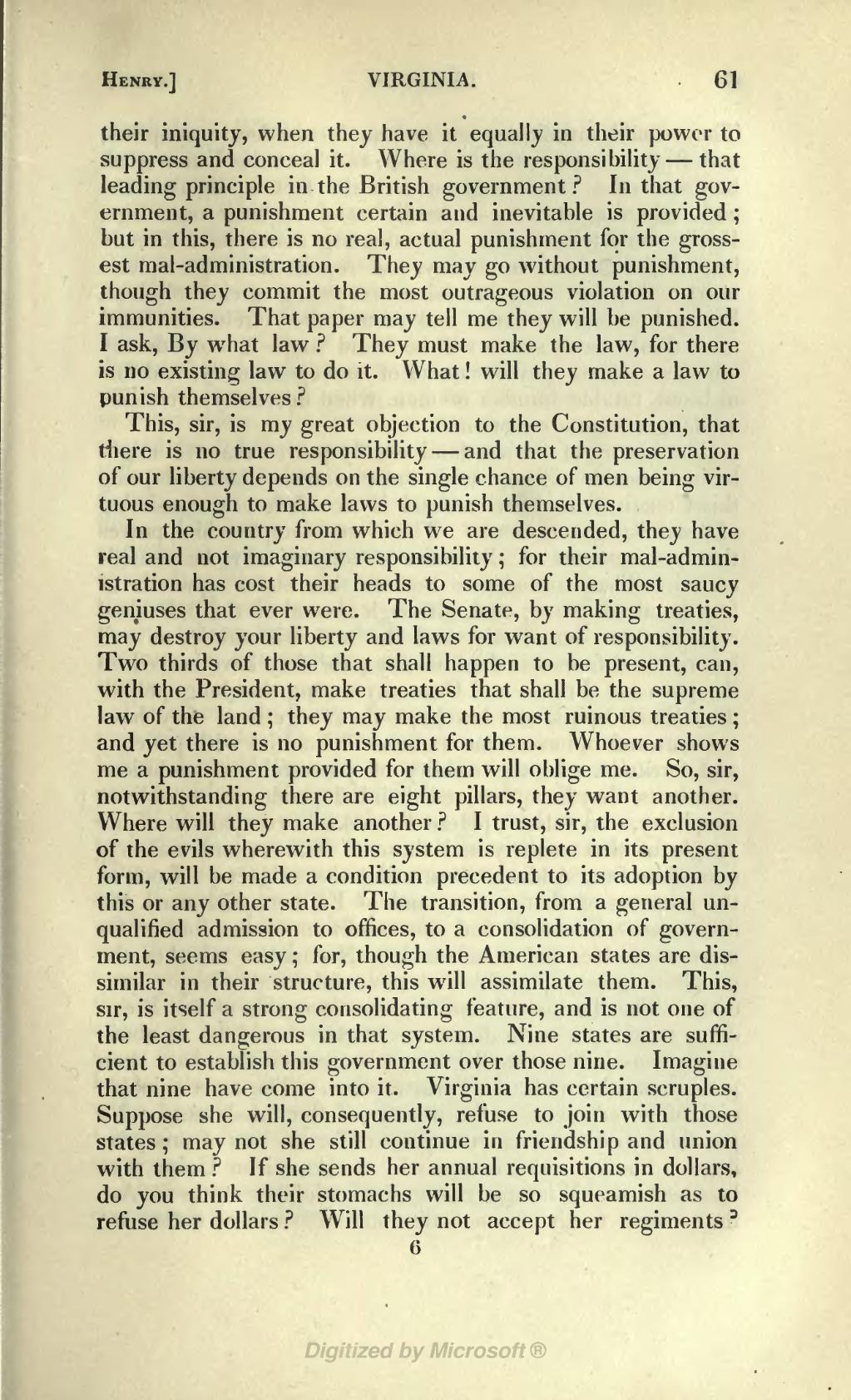their iniquity, when they have it equally in their power to suppress and conceal it. Where is the responsibility—that leading principle in the British government? In that government, a punishment certain and inevitable is provided; but in this, there is no real, actual punishment for the grossest mal-administration. They may go without punishment, though they commit the most outrageous violation on our immunities. That paper may tell me they will be punished. I ask, By what law? They must make the law, for there is no existing law to do it. What! will they make a law to punish themselves?
This, sir, is my great objection to the Constitution, that there is no true responsibility—and that the preservation of our liberty depends on the single chance of men being virtuous enough to make laws to punish themselves.
In the country from which we are descended, they have real and not imaginary responsibility; for their mal-administration has cost their heads to some of the most saucy geniuses that ever were. The Senate, by making treaties, may destroy your liberty and laws for want of responsibility. Two thirds of those that shall happen to be present, can, with the President, make treaties that shall be the supreme law of the land; they may make the most ruinous treaties; and yet there is no punishment for them. Whoever shows me a punishment provided for them will oblige me. So, sir, notwithstanding there are eight pillars, they want another. Where will they make another? I trust, sir, the exclusion of the evils wherewith this system is replete in its present form, will be made a condition precedent to its adoption by this or any other state. The transition, from a general unqualified admission to offices, to a consolidation of government, seems easy; for, though the American states are dissimilar in their structure, this will assimilate them. This, sir, is itself a strong consolidating feature, and is not one of the least dangerous in that system. Nine states are sufficient to establish this government over those nine. Imagine that nine have come into it. Virginia has certain scruples. Suppose she will, consequently, refuse to join with those states; may not she still continue in friendship and union with them? If she sends her annual requisitions in dollars, do you think their stomachs will be so squeamish as to refuse her dollars? Will they not accept her regiments?
6
